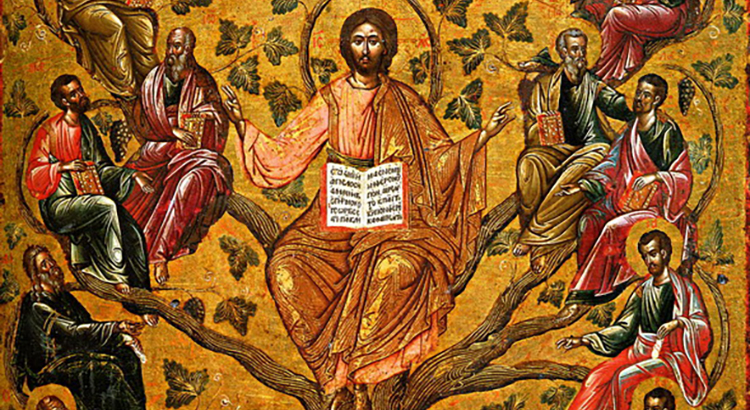Memory of the apostles
Memorial of Saint Matthew, apostle and evangelist.
Reading of the Word of God
Alleluia, alleluia, alleluia
If we die with him, we shall live with him,
if with him we endure, with him we shall reign.
Alleluia, alleluia, alleluia
Matthew 9,9-13
As Jesus was walking on from there he saw a man named Matthew sitting at the tax office, and he said to him, 'Follow me.' And he got up and followed him. Now while he was at table in the house it happened that a number of tax collectors and sinners came to sit at the table with Jesus and his disciples. When the Pharisees saw this, they said to his disciples, 'Why does your master eat with tax collectors and sinners?' When he heard this he replied, 'It is not the healthy who need the doctor, but the sick. Go and learn the meaning of the words: Mercy is what pleases me, not sacrifice. And indeed I came to call not the upright, but sinners.'
Alleluia, alleluia, alleluia
If we die with him, we shall live with him,
if with him we endure, with him we shall reign.
Alleluia, alleluia, alleluia
In this day in which the Church remembers Matthew, apostle and evangelist we read again the story of his vocation. His call becomes an opportunity to open our eyes to the Lord's mercy. An ancient Christian commentator wrote: "He saw a publican and, looking at him with mercy, he chose him (miserando atque eligendo) and said to him, 'Follow me.' He said to him, 'Follow me,' that is, imitate me. Follow me, he said, not so much with the movement of the feet as with the practice of life." It is no coincidence that Pope Francis chose as the motto of his pontificate precisely this expression: 'Miserando atque eligendo'. At the beginning of Jesus' call there is always his mercy. And by virtue of this choice, even a publican like Matthew can become a disciple and guide to others. "Learn what it means: Mercy I want and not sacrifice," says Jesus. The world seems to have forgotten what this word means: mercy is the heart that becomes close to what is small, and it translates the Hebrew term hesed, which indicates covenant and solidarity. And to feel mercy is then not an act of pity but of justice. Matthew seems to have learnt immediately what this means, in fact he opens the doors of his house, invites Jesus and those with him into his home and offers them a banquet. There are also his friends and others whom the Gospel calls 'sinners': they were people despised by all. Matthew understands that one is not saved alone. He understands that converting one's life does not mean making a formal 'sacrifice,' but making concrete gestures that change the lives and hearts of others. Jesus is not scandalised by people's sin, by their weakness, but he distances himself from the judgement of the Pharisees, who put up walls, create distances, draw borders that divide people, into pure and impure, good and bad, healthy and sick. "Those who are well have no need of a physician, but those who are sick." Then Jesus explains his mission: he came to help and heal, to free and save. He did not come down from heaven to judge, but to teach men and women to act like him.
